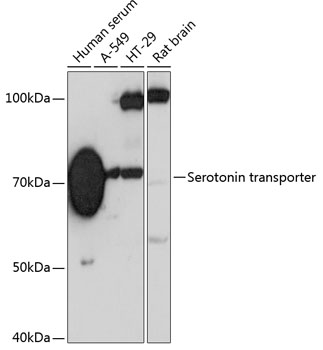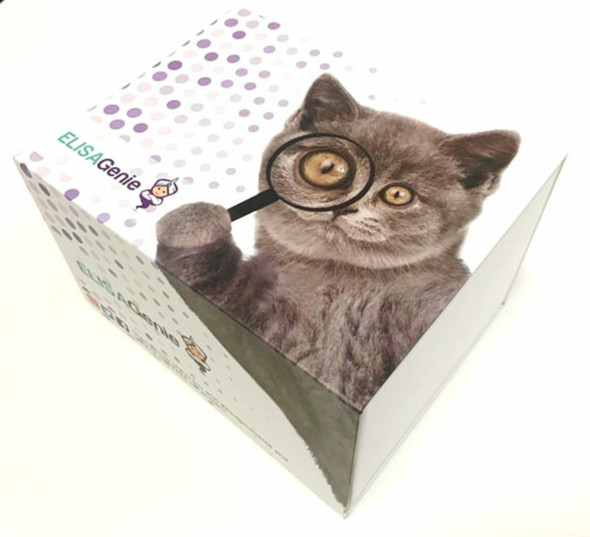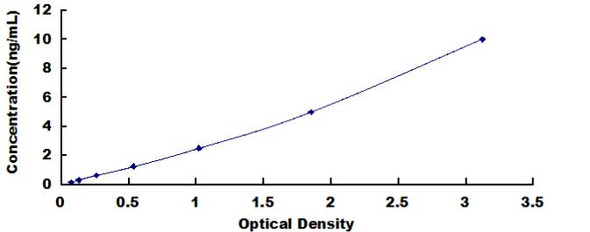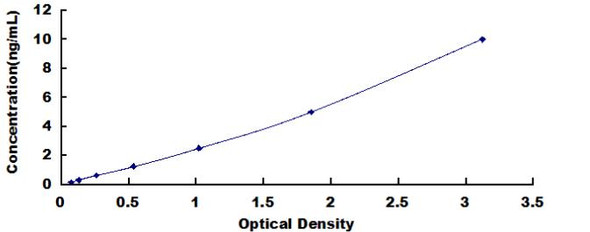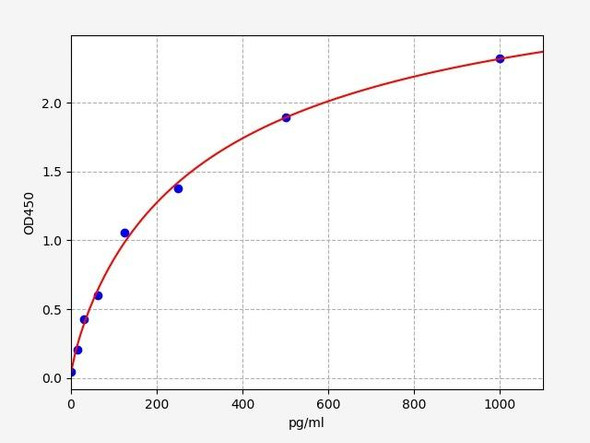Neuroscience
Anti-Serotonin transporter Antibody (CAB19110)
- SKU:
- CAB19110
- Product Type:
- Antibody
- Reactivity:
- Human
- Reactivity:
- Rat
- Host Species:
- Rabbit
- Isotype:
- IgG
- Research Area:
- Neuroscience
Description
| Antibody Name: | Anti-Serotonin transporter Antibody |
| Antibody SKU: | CAB19110 |
| Antibody Size: | 20uL, 50uL, 100uL |
| Application: | WB IF |
| Reactivity: | Human, Rat |
| Host Species: | Rabbit |
| Immunogen: | A synthesized peptide derived from human Serotonin transporter |
| Application: | WB IF |
| Recommended Dilution: | WB 1:500 - 1:2000 IF 1:50 - 1:200 |
| Reactivity: | Human, Rat |
| Positive Samples: | Human serum, A-549, HT-29, Rat brain |
| Immunogen: | A synthesized peptide derived from human Serotonin transporter |
| Purification Method: | Affinity purification |
| Storage Buffer: | Store at -20°C. Avoid freeze / thaw cycles. Buffer: PBS with 0.02% sodium azide, 0.05% BSA, 50% glycerol, pH7.3. |
| Isotype: | IgG |
| Sequence: | Email for sequence |
| Gene ID: | 6532 |
| Uniprot: | P31645 |
| Cellular Location: | |
| Calculated MW: | 70kDa |
| Observed MW: | 70kDa |
| Synonyms: | 5-HTT, 5-HTTLPR, 5HTT, HTT, OCD1, SERT, SERT1, hSERT, SLC6A4 |
| Background: | This gene encodes an integral membrane protein that transports the neurotransmitter serotonin from synaptic spaces into presynaptic neurons. The encoded protein terminates the action of serotonin and recycles it in a sodium-dependent manner. This protein is a target of psychomotor stimulants, such as amphetamines and cocaine, and is a member of the sodium:neurotransmitter symporter family. A repeat length polymorphism in the promoter of this gene has been shown to affect the rate of serotonin uptake and may play a role in sudden infant death syndrome, aggressive behavior in Alzheimer disease patients, and depression-susceptibility in people experiencing emotional trauma. [provided by RefSeq, Jul 2008] |
| UniProt Protein Function: | SERT: Serotonin transporter whose primary function in the central nervous system involves the regulation of serotonergic signaling via transport of serotonin molecules from the synaptic cleft back into the pre-synaptic terminal for re-utilization. Plays a key role in mediating regulation of the availability of serotonin to other receptors of serotonergic systems. Terminates the action of serotonin and recycles it in a sodium-dependent manner. Belongs to the sodium:neurotransmitter symporter (SNF) (TC 2.A.22) family. SLC6A4 subfamily. |
| UniProt Protein Details: | Protein type:Membrane protein, integral; Membrane protein, multi-pass; Transporter Chromosomal Location of Human Ortholog: 17q11.2 Cellular Component: neuron projection; integral to plasma membrane; plasma membrane; endomembrane system; endosome membrane; cytosol; lipid raft Molecular Function:actin filament binding; serotonin transmembrane transporter activity; protein binding; protein homodimerization activity; myosin binding; serotonin:sodium symporter activity; cocaine binding; syntaxin-1 binding; monoamine transmembrane transporter activity; nitric-oxide synthase binding; Rab GTPase binding Biological Process: circadian rhythm; response to drug; vasoconstriction; response to toxin; monoamine transport; positive regulation of cell cycle; social behavior; thalamus development; serotonin uptake; negative regulation of organ growth; negative regulation of synaptic transmission, dopaminergic; protein oligomerization; memory; response to estradiol stimulus; negative regulation of granule cell precursor proliferation; negative regulation of neuron differentiation; brain morphogenesis; response to hypoxia; sperm ejaculation; serotonin transport; transmembrane transport; protein homooligomerization; response to nutrient Disease: Anxiety; Obsessive-compulsive Disorder |
| NCBI Summary: | This gene encodes an integral membrane protein that transports the neurotransmitter serotonin from synaptic spaces into presynaptic neurons. The encoded protein terminates the action of serotonin and recycles it in a sodium-dependent manner. This protein is a target of psychomotor stimulants, such as amphetamines and cocaine, and is a member of the sodium:neurotransmitter symporter family. A repeat length polymorphism in the promoter of this gene has been shown to affect the rate of serotonin uptake and may play a role in sudden infant death syndrome, aggressive behavior in Alzheimer disease patients, and depression-susceptibility in people experiencing emotional trauma. [provided by RefSeq, Jul 2008] |
| UniProt Code: | P31645 |
| NCBI GenInfo Identifier: | 400630 |
| NCBI Gene ID: | 6532 |
| NCBI Accession: | P31645.1 |
| UniProt Secondary Accession: | P31645,Q5EE02, |
| UniProt Related Accession: | P31645,AAB26687 |
| Molecular Weight: | 74,979 Da |
| NCBI Full Name: | Sodium-dependent serotonin transporter |
| NCBI Synonym Full Names: | solute carrier family 6 (neurotransmitter transporter), member 4 |
| NCBI Official Symbol: | SLC6A4 |
| NCBI Official Synonym Symbols: | HTT; 5HTT; OCD1; SERT; 5-HTT; SERT1; hSERT; 5-HTTLPR |
| NCBI Protein Information: | sodium-dependent serotonin transporter; 5HT transporter; serotonin transporter 1; Na+/Cl- dependent serotonin transporter; 5-hydroxytryptamine (serotonin) transporter; solute carrier family 6 (neurotransmitter transporter, serotonin), member 4 |
| UniProt Protein Name: | Sodium-dependent serotonin transporter |
| UniProt Synonym Protein Names: | 5HT transporter; 5HTT; Solute carrier family 6 member 4 |
| UniProt Gene Name: | SLC6A4 |
| UniProt Entry Name: | SC6A4_HUMAN |


